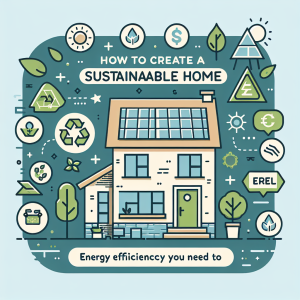Eco-friendly practices have become essential in the fight against global warming, a pressing issue that affects the entire planet. By embracing sustainable actions, individuals, businesses, and governments can significantly reduce the emission of greenhouse gases, thereby mitigating the adverse effects of climate change. The transition to a more sustainable way of living can manifest in various forms, ranging from renewable energy adoption to sustainable agriculture.
Adopting renewable energy sources is one of the most effective eco-friendly practices in reducing global warming. Fossil fuels, such as coal, oil, and natural gas, are major contributors to greenhouse gas emissions. Their combustion releases significant amounts of carbon dioxide, a leading driver of climate change. Shifting to renewable energy sources, like solar, wind, and hydroelectric power, can drastically cut emissions. Solar panels and wind turbines generate electricity without releasing harmful substances, making them a suitable alternative to traditional energy sources. According to the International Renewable Energy Agency (IRENA), doubling the global share of renewable energy by 2030 could reduce emissions by as much as 70%.
Energy efficiency also plays a critical role in tackling global warming. Implementing energy-efficient practices in buildings, transportation, and industries can lead to significant reductions in energy consumption and greenhouse gas emissions. In residential buildings, for instance, using LED lighting, improving insulation, and adopting smart home technologies can lower energy usage. Similarly, the transportation sector can benefit from the production and adoption of electric vehicles, which emit no tailpipe pollutants. The International Energy Agency (IEA) estimates that improving energy efficiency globally could lead to a reduction of carbon dioxide emissions by over 5 gigatonnes annually by 2040.
Another impactful eco-friendly practice is sustainable agriculture. Traditional agricultural practices often involve deforestation, excessive water usage, and the application of synthetic fertilizers and pesticides, all of which contribute to climate change. Sustainable agriculture, on the other hand, focuses on enhancing productivity while minimizing environmental impact. Techniques like crop rotation, permaculture, and agroforestry help maintain soil health and increase carbon sequestration. Moreover, organic farming avoids the use of synthetic chemicals, reducing the release of nitrous oxide, a potent greenhouse gas. A report by the Food and Agriculture Organization suggests that adopting sustainable agriculture practices could reduce agriculture-related emissions by approximately 30%.
Waste management is another area where eco-friendly practices can significantly impact global warming. The improper disposal of waste leads to methane emissions, especially from landfills. Methane is over 25 times more effective at trapping heat in the atmosphere than carbon dioxide, making it a critical target in emission reduction strategies. Encouraging recycling, composting, and waste-to-energy technologies can help manage waste sustainably. Recycling reduces the need for raw material extraction, minimizing energy consumption and emissions. Composting organic waste returns nutrients to the soil without releasing methane, while waste-to-energy technologies convert waste materials into usable heat, electricity, or fuel.
Water conservation is intricately linked to energy use and climate change. Hot water requires energy to heat, and water treatment plants consume vast amounts of energy. Thus, conserving water can indirectly reduce greenhouse gas emissions. Simple actions, such as fixing leaks, installing low-flow fixtures, and utilizing rainwater harvesting systems, can significantly decrease water usage. By reducing the demand on water treatment facilities, these practices lower energy consumption and the associated emissions.
Green urban planning contributes to the reduction of global warming by creating sustainable cities that prioritize eco-friendly transportation, green spaces, and resource-efficient infrastructure. Designing compact urban centers with integrated public transit systems reduces the reliance on personal vehicles, thereby decreasing transportation emissions. Urban green spaces, such as parks and green roofs, enhance carbon sequestration, improve air quality, and regulate urban temperatures. Additionally, implementing energy-efficient building codes and promoting the use of sustainable construction materials can reduce the carbon footprint of new developments.
Individual behavior change can collectively result in significant emission reductions. Conscious consumer choices, like purchasing eco-friendly products, reducing meat consumption, and minimizing single-use plastics, can significantly decrease a person’s carbon footprint. Educational initiatives and awareness campaigns play a vital role in encouraging such behavior changes. By understanding the environmental impact of their actions, individuals can make informed decisions that contribute to the larger goal of reducing global warming.
Corporate responsibility is paramount in implementing eco-friendly practices to combat global warming. Companies can adopt sustainable business models that prioritize resource efficiency and emission reductions. Measures such as sourcing renewable energy, optimizing supply chains, and investing in carbon offset projects can set industry standards for sustainability. Furthermore, corporate transparency and reporting on environmental impact foster accountability and inspire other businesses to follow suit.
Policymaking is crucial for implementing and scaling eco-friendly practices that address global warming. Governments can enact regulations and provide incentives to encourage sustainable practices across various sectors. Carbon pricing mechanisms, subsidies for renewable energy, and stringent emissions standards are examples of policies that can drive the transition to a low-carbon economy. International cooperation and agreements, such as the Paris Agreement, emphasize the global commitment to limit temperature rises and promote sustainable development.
To maximize the impact of eco-friendly practices on global warming, technological innovation and research are indispensable. Advances in clean energy technologies, carbon capture and storage, and sustainable materials science can provide new solutions to mitigate climate change. Continued investment in research and development ensures the constant evolution of these practices, enhancing their efficiency and effectiveness.
The cumulative impact of adopting eco-friendly practices extends beyond emissions reductions. They also offer co-benefits, such as improved public health, economic savings, and enhanced resilience to climate impacts. Reducing fossil fuel use and air pollution can lead to healthier communities, while energy efficiency measures often result in cost savings for consumers and businesses. Moreover, sustainable practices enhance the resilience of ecosystems and societies, making them better equipped to withstand the impacts of global warming.
In conclusion, embracing eco-friendly practices holds significant potential to mitigate global warming and secure a sustainable future. Through concerted efforts across individuals, businesses, and governments, it is possible to slash carbon emissions and transition towards a resilient and low-carbon economy. The collective implementation of renewable energy, sustainable agriculture, waste management, and conservation initiatives can pave the way towards achieving global climate goals and safeguarding the environment for future generations.



